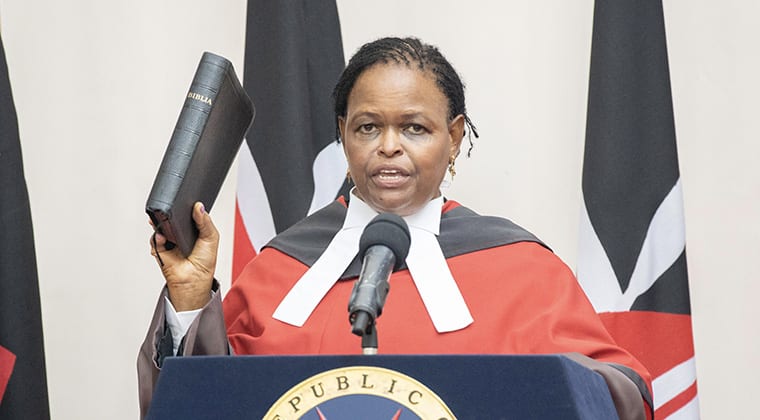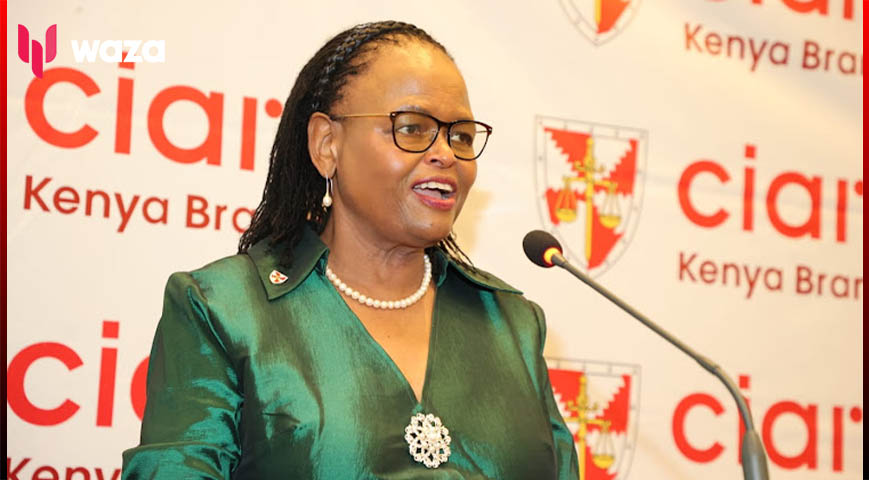Chief Justice Martha Koome has defended the Judiciary in the debate over the new housing levy law, claiming no agreement was reached for the program's implementation by the third branch of government.
This comes after President William Ruto stated during his speech in Bomet on Saturday that the Judiciary and the Executive agreed on the program.
Speaking on Thursday in Naivasha, Chief Justice Koome stated that the judiciary is independent and that its job is to carry out its legal obligations regarding the housing levy issue.
She emphasized that the Judiciary was an independent party in the court case in which the levy's implementation had previously been suspended.
Did you read this?
"Judiciary is not, in any capacity, able to enter into any agreement with the Executive, especially in a matter that is before court. The Judiciary was not a party in that cause, and I tried to look at the clip where the President was quoted to have said he entered into an agreement with the Judiciary," she said.
"I'm a judge, I'm not a communication expert, but what I could deduce from that conversation is that it was taken out of context or there was misinterpretation. Because what the President was saying is that he agreed with the judgement of the court that gave directions on what needed to be done to create a framework on how to administer the housing levy, and what he was telling Kenyans is that the Executive has complied with the directions given in the judgement."
Koome rejected a bill that would have combined the Environment and Lands Court and the Employment and Labor Relations Court simultaneously, stating that time had passed.
She pointed out that by objecting to the Bill, which aims to reverse progress in addressing the nation's labor issues, the Judiciary has brought its concerns to the attention of Parliament.

Nonetheless, Koome commended the Employment and Labour Relations Courts (ELRC) for taking action to close the case backlog during the previous 12 months.
In the past year, these courts have resolved over 3,400 cases, and the percentage of adjournments has decreased from 3% to 2%.
Florence Bore, the cabinet secretary for labor, was also present at the conference and announced that the ministry had started revising the nation's antiquated labor laws.
Justice Daniel Musinga, for his part, reported that the Court of Appeal had received 8,443 appeal cases over the previous six months, with Nairobi leading with 891.









